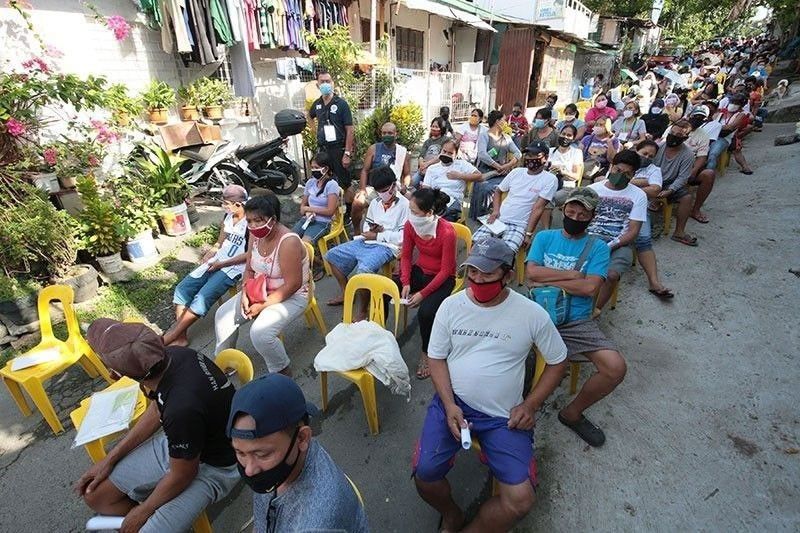P9 billion unutilized as Bayanihan 2 expires

MANILA, Philippines — The Bayanihan to Recover as One Act or Bayanihan 2 expired yesterday with about P9 billion in funds meant for pandemic response programs left unutilized.
With no further extension of the law, these funds will be reverted to the national treasury, leaving the projects for which they were allocated hanging, said Deputy Speaker Rufus Rodriguez.
The Cagayan de Oro congressman said the unused funds can no longer be disbursed by government as that would require another piece of legislation.
He emphasized that it would be illegal to obligate the unused funds unless Bayanihan 2 is extended.
“If there will be expenses under Bayanihan 2 to be given out, that will be technical malversation. There is no more law allowing such expenditure,” Rodriguez said.
“All money of the government are through either the General Appropriations Act or special laws like Bayanihan 2, which is an appropriations provision and it ends today, June 30,” he said in an interview yesterday.
Rodriguez also pointed out that the unutilized funds cannot be obligated instantly or within one day just before the expiration of the law, as suggested earlier by presidential spokesman Harry Roque Jr.
“Impossible to obligate the entire P9 billion today,” the congressman said.
Instead of that, Rodriguez appealed for a special session to pass a reappropriation measure so that the P9 billion unobligated and unspent in Bayanihan 2 can be utilized until Dec. 31, 2021.
“There are many sectors in need waiting for its release,” he said, adding that the proper remedy should be for President Duterte to call for a special session to “revive” the expired funds.
“We can still have a special session next week so we can revive it (Bayanihan 2). It’s true, it cuts off today but by law, it can say that the appropriations that were not obligated or released are now by law allowed to be released up to Dec. 30 (or 31). That is why we are still appealing to the President to call a special session,” he said.
House appropriations committee chair and ACT-CIS party-list Rep. Eric Yap cited the need to extend the law to “give the government the opportunity to continuously implement the recovery and stimulus programs specified in the Bayanihan 2, most especially in allocating funds for more essential and relevant expenses necessary to recover from the distressing effects of this global pandemic.”
Meanwhile, minority Rep. Edcel Lagman slammed the administration for its failure to complete the programs under Bayanihan 2 on time.
“Paucity in appropriation is aggravated by ineptness in fund utilization for the pandemic response. This is the tragedy of Bayanihan 2 or RA No. 11494 which expires today,” the Albay congressman said.
“This is a serious indictment of the failure of the Duterte administration to rescue Filipinos from health complications and bail out the economy consequent to the onslaught of COVID-19,” he added.
The House has already approved a measure further extending the validity of Bayanihan 2 until end of this year to allow government agencies to complete the pandemic response programs.
But before Congress adjourned session sine die last June 4, the Senate was unable to pass the measure. The Palace has also rejected calls by House leaders for a special session during the recess.
Transport programs halted
Yesterday, the Land Transportation Franchising and Regulatory Board (LTFRB) announced its service contracting and free ride programs are suspended starting today because funds used to pay drivers and operators are sourced from Bayanihan 2.
The LTFRB said that they are looking to resume operations for the two programs under funds allotted under the 2021 General Appropriations Act (GAA), but it is still being processed by the Department of Budget and Management.
The P5-billion budget allotted under Bayanihan 2 meant to cushion the adverse effects of the COVID-19 pandemic on the severely hit transport sector was under-utilized by the LTFRB and the Department of Transportation (DOTr).
Only some P1.5 billion of the P3-billion budget has been paid out to public utility vehicle (PUV) drivers under the service contracting program that provides incentives and subsidies to partner drivers based on kilometers traveled.
The LTFRB said that some 19,000 drivers received their initial P4,000 payout, while only 8,347 drivers received their onboarding incentive of P20,000 to P25,000.
Its free ride program served over 27.9 million individuals since the start of the pandemic. – Romina Cabrera
- Latest
- Trending































